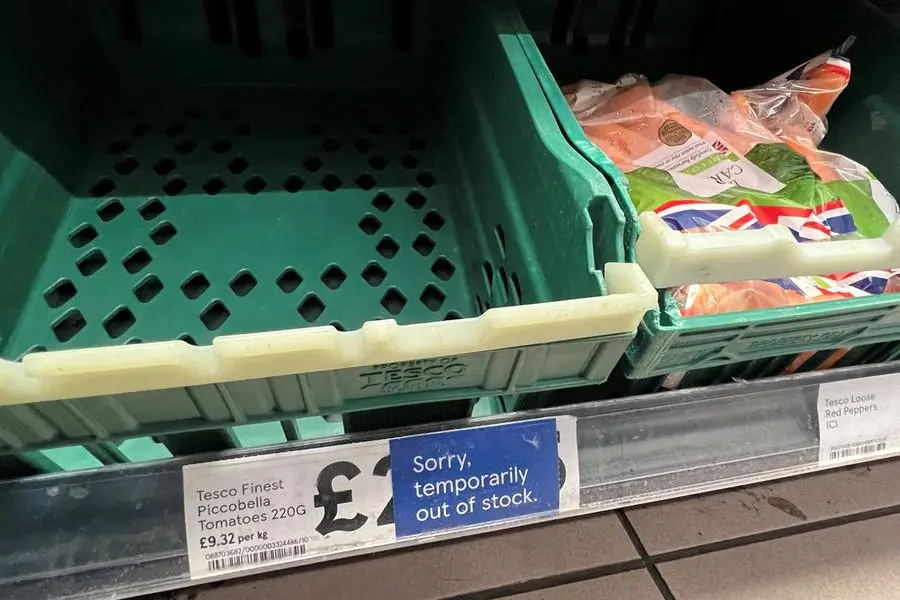PHOTO
LONDON - Britons may face shortages of salad staples, including tomatoes, cucumbers and peppers, for up to another month, the government said on Thursday.
On Wednesday, Britain's biggest supermarket group Tesco followed rivals Asda, Morrisons and Aldi in imposing customer purchase limits on salad items after supplies were hit by disrupted harvests in southern Europe and north Africa due to unseasonal weather.
The crisis has been exacerbated by less winter production in greenhouses in Britain and the Netherlands because of high energy costs, with social media awash with pictures of empty fruit and vegetable shelves in supermarkets.
"I'm led to believe by my officials after discussion with industry retailers...the situation will last about another two to four weeks," Therese Coffey, minister for the environment, food and rural affairs told parliament.
"It's important that we try and make sure that we get alternative sourcing options," she said.
One of Britain's most experienced retail bosses blamed the shortage on a lack of government support that prevented domestic growers from making up for poor harvests overseas.
Justin King, who is a non-executive director of Marks & Spencer and was CEO of Sainsbury's for a decade to 2014, said Britain was uniquely exposed to imports at this time of year because the government had chosen not to help UK growers with their energy bills.
"There is a genuine shortage but we did rather bring this problem upon ourselves," he told BBC radio.
"We could have chosen to subsidise the energy this winter as we have done for other industries."
Horticulture has been excluded from a government Energy and Trade Intensive Industries scheme (ETII) that provides help with energy costs.
On Tuesday, Minette Batters, the head of the National Farmers union said production of salad ingredients was expected to fall to the lowest level since records began in 1985.
King said that most UK supermarkets still had a "very good" supply of salad, but overall the country is short.
He said it was likely restaurants and high street green grocers struggling to get stock from their wholesale markets were instead going to supermarkets for supplies.
"That's why supermarkets introduce fair purchase policies so that 'real' customers are able to buy the one or two that they really need," he said.
King also said Brexit has caused significant disruption, while lawmakers who supported Britain's withdrawal from the EU bloc dismissed the suggestion it was responsible for the current crisis.
"If only I had been told before I voted for Brexit that it was going to cause frost in Morocco, I could have made a different decision," Conservative lawmaker Desmond Swayne said.
(Reporting by James Davey, additional reporting by Kylie MacLellan; editing by Barbara Lewis)





















